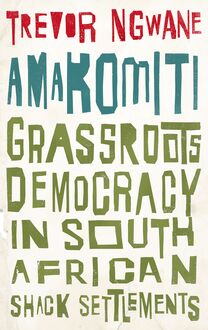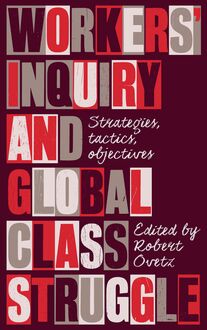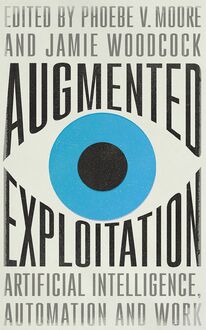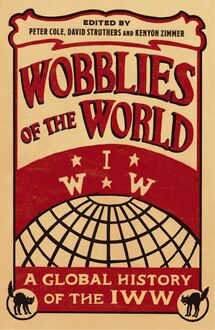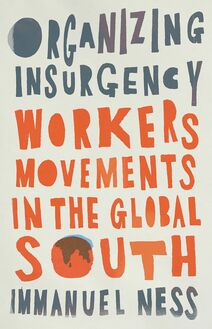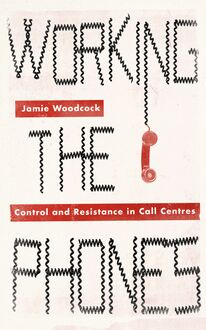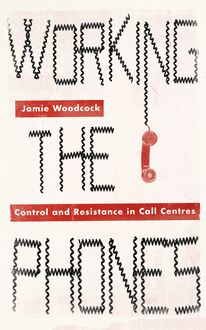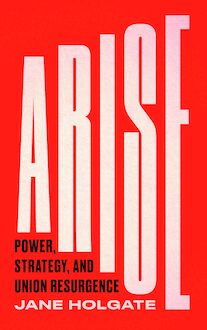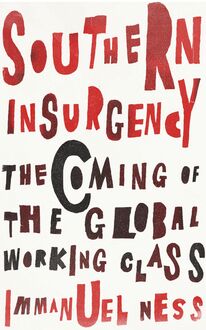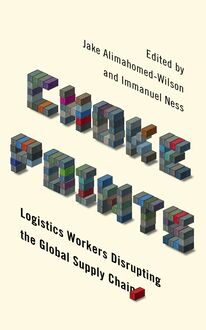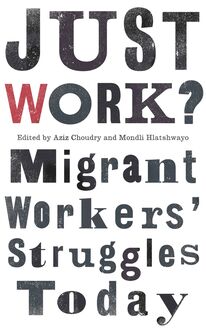-
 Univers
Univers
-
 Ebooks
Ebooks
-
 Livres audio
Livres audio
-
 Presse
Presse
-
 Podcasts
Podcasts
-
 BD
BD
-
 Documents
Documents
-
- Cours
- Révisions
- Ressources pédagogiques
- Sciences de l’éducation
- Manuels scolaires
- Langues
- Travaux de classe
- Annales de BEP
- Etudes supérieures
- Maternelle et primaire
- Fiches de lecture
- Orientation scolaire
- Méthodologie
- Corrigés de devoir
- Annales d’examens et concours
- Annales du bac
- Annales du brevet
- Rapports de stage
La lecture à portée de main
Vous pourrez modifier la taille du texte de cet ouvrage
Découvre YouScribe en t'inscrivant gratuitement
Je m'inscrisDécouvre YouScribe en t'inscrivant gratuitement
Je m'inscrisEn savoir plus
Vous pourrez modifier la taille du texte de cet ouvrage
En savoir plus

Description
'Jane Holgate is a brilliant thinker' - Jane McAlevey
In Arise, Jane Holgate argues that unions must revisit their understanding of power in order to regain influence and confront capital. Drawing on two decades of research and organising experience, Holgate examines the structural inertia of today’s unions from a range of perspectives: from strategic choice, leadership and union democracy to politics, tactics and the agency afforded to rank-and-file members.
In the midst of a neoliberal era of economic crisis and political upheaval, the labour movement stands at a crossroads. Union membership is on the rise, but the ‘turn to organising’ has largely failed to translate into meaningful gains for workers. There is considerable discussion about the lack of collectivism among workers due to casualisation, gig work and precarity, yet these conditions were standard in the UK when workers built the foundations of the 19th-century trade union movement.
Drawing on history and case studies of unions developing and using power effectively, this book offers strategies for moving beyond the pessimism that prevails in much of today’s union movement. By placing power analysis back at the heart of workers' struggle, Holgate shows us that transformational change is not only possible, but within reach.
List of Abbreviations
Series Preface
Acknowledgements
1. Looking to the Past to Understand the Present
2. Let’s Talk about Social Power
3. Harnessing Power in the Late Nineteenth-Century–Early Twentieth-Century ‘Gig Economy’
4. Understanding and Using Levers of Power in the Latter Half of the Twentieth Century
5. Structural Change and the Weakening of the Power of Workers
6. Union Responses to Decline and Loss of Power
7. Organising in Theory: Recruitment in Practice?
8. Leadership, Strategic Choice and Union Power in the Turn to Organising
9. Winning Power is Possible
Notes
Bibliography
Index
Sujets
Economic Policy
Public Policy
Industrial Management
Industries
POLITICAL SCIENCE
ECONOMICS
Employabilité, métiers et formations
Movimiento sindical
21st century
Sociology
Union organizer
Labor history
General officer
Industrial organization
Political economy
Trade union
Business
LAW
General
Labor
Industrie
Informations
| Publié par | Pluto Press |
| Date de parution | 20 août 2021 |
| Nombre de lectures | 0 |
| EAN13 | 9780745344041 |
| Langue | English |
Informations légales : prix de location à la page 0,0748€. Cette information est donnée uniquement à titre indicatif conformément à la législation en vigueur.
Extrait
Arise
Jane Holgate is a brilliant thinker. By centring her thesis on power, this book contributes to our understanding of what strategies and mechanisms enable workers to stand a chance at achieving justice.
-Jane McAlevey is an organiser, scholar and author of No Shortcuts: Organizing for Power in the New Gilded Age
A must-read - by a top-class scholar, union educator and activist, and written with exceptional clarity. Readers will come away with a deeper understanding of the world and with the tools to change it.
-John Kelly, Emeritus Professor of Industrial Relations at Birkbeck College University of London
Part history text, part employment relations research; Jane Holgate s book critiques decades of union renewal strategies in the UK and questions assumptions from both the left and right over how to regain collective power rather than just recruit new members.
-Dave Smith is a blacklisted construction worker and co-author of Blacklisted: The Secret War Between Big Business and Union Activists
A brilliant treatise on how to think about worker power in the context of sweeping structural change. It is well past time for labour scholars to return to this fundamental question and Jane Holgate has made an indispensable contribution to the canon.
-Janice Fine, Professor of Labor Studies and Employment Relations, Rutgers University and Director of Research and Strategy at the Center on Innovation in Worker Organization
An excellent review of the leaps forward and setbacks for workers and their unions, and an invaluable read for Jane Holgate s astute analyses. But that s not what the book is about. It is about power. Power for workers, which is the reason for organising, and which is too often forgotten in the daily struggle. We can continue on the current path to oblivion, with unions becoming little more than legacy politicians, or remember our roots and aggressively organise in new ways with workers in an evolving economy.
-Wade Rathke, founder and Chief Organiser of ACORN International
In examining the problems that we have to face to rebuild the movement, this analysis of power, who has it and how to build it, is a must-read for aspiring activists. An essential book for those who are committed to the idea that trade unionism is a vehicle through which we can organise to delivering transformative change for all workers.
-Wilf Sullivan, Race Equality Officer for the Trades Union Congress (TUC)
Jane Holgate s experience as an academic and a union activist has given her unique insights that make this book an important read for anyone who wants to understand where unions have been, where they are now and where they need to go
-Arnie Graf, community organiser with the Industrial Areas Foundation and author of Lessons Learned. Stories from a Lifetime of Organizing
Wildcat: Workers Movements and Global Capitalism
Series Editors:
Immanuel Ness (City University of New York)
Peter Cole (Western Illinois University)
Raquel Varela (Instituto de Hist ria Contempor nea IHC
of Universidade Nova de Lisboa, Lisbon New University) Tim Pringle (SOAS, University of London)
Also available:
Choke Points:
Logistics Workers Disrupting the Global Supply Chain
Edited by Jake Alimahomed-Wilson and Immanuel Ness
The Cost of Free Shipping:
Amazon in the Global Economy
Edited by Jake Alimahomed-Wilson and Ellen Reese
Power Despite Precarity:
Strategies for the Contingent Faculty Movement in Higher Education
Joe Berry and Helena Worthen
Dying for an iPhone:
Apple, Foxconn and the Lives of China s Workers
Jenny Chan, Mark Selden and Pun Ngai
Just Work?
Migrant Workers Struggles Today Edited by Aziz Choudry and Mondli Hlatshwayo
Wobblies of the World:
A Global History of the IWW
Edited by Peter Cole, David Struthers and Kenyon Zimmer
Augmented Exploitation: Artificial Intelligence, Automation and Work Edited by Phoebe V. Moore and
Jamie Woodcock
Organizing Insurgency:
Workers Movements in the Global South Immanuel Ness
Southern Insurgency:
The Coming of the Global Working Class Immanuel Ness
Amakomiti:
Grassroots Democracy in South African Shack Settlements
Trevor Ngwane
Workers Inquiry and Global Class Struggle: Strategies, Tactics, Objectives
Edited by Robert Ovetz
The Spirit of Marikana:
The Rise of Insurgent Trade Unionism in South Africa
Luke Sinwell with Siphiwe Mbatha
Solidarity:
Latin America and the US Left in the Era of Human Rights
Steve Striffler
Working the Phones:
Control and Resistance in Call Centres Jamie Woodcock
Arise
Power, Strategy and
Union Resurgence
Jane Holgate
First published 2021 by Pluto Press
345 Archway Road, London N6 5AA
www.plutobooks.com
Copyright Jane Holgate 2021
The right of Jane Holgate to be identified as the author of this work has been asserted in accordance with the Copyright, Designs and Patents Act 1988.
British Library Cataloguing in Publication Data
A catalogue record for this book is available from the British Library
ISBN 978 0 7453 4403 4 Hardback
ISBN 978 0 7453 4402 7 Paperback
ISBN 978 0 7453 4406 5 PDF
ISBN 978 0 7453 4404 1 EPUB
ISBN 978 0 7453 4405 8 Kindle
This book is printed on paper suitable for recycling and made from fully managed and sustained forest sources. Logging, pulping and manufacturing processes are expected to conform to the environmental standards of the country of origin.
Typeset by Stanford DTP Services, Northampton, England
Simultaneously printed in the United Kingdom and United States of America
Contents
List of Abbreviations
Series Preface
Acknowledgements
1. Looking to the Past to Understand the Present
2. Let s Talk about Social Power
3. Harnessing Power in the Late Nineteenth-Century-Early Twentieth-Century Gig Economy
4. Understanding and Using Levers of Power in the Latter Half of the Twentieth Century
5. Structural Change and the Weakening of the Power of Workers
6. Union Responses to Decline and Loss of Power
7. Organising in Theory: Recruitment in Practice?
8. Leadership, Strategic Choice and Union Power in the Turn to Organising
9. Winning Power is Possible
Notes
Bibliography
Index
For John, who for nearly 40 years has fought for social justice by my side
Abbreviations
ACAS
Advisory, Conciliation and Arbitration Service
AFL-CIO
American Federation of Labor-Congress of Industrial Organizations
APEX
Association of Professional, Executive, Clerical and Computer Staff
CSOs
civil society organisations
CWU
Communication Workers Union
EU
European Union
FBU
Fire Brigades Union
GMB
General, Municipal, Boilerworkers and Allied Trades Union
HRM
human resource management
ILO
International Labour Organisation
IWGB
Independent Workers of Great Britain
LCDTU
Liaison Committee for the Defence of Trade Unions
NAFF
National Association for Freedom (now the Freedom Association)
NCB
National Coal Board
NGA
National Graphical Association
NIRC
National Industrial Relations Court
NUJ
National Union of Journalists
NUM
National Union of Mineworkers
OA
Organising Academy
PCS
Public and Commercial Services Union
RMT
Rail, Maritime and Transport Union
SEIU
Service Employees International Union
TGWU
Transport and General Workers Union (now Unite)
TUC
Trades Union Congress
USDAW
Union of Shop, Distributive and Allied Workers
UVW
United Voices of the World
Series Preface
Workers movements are a common and recurring feature in contemporary capitalism. The same militancy that inspired the mass labour movements of the twentieth century continues to define worker struggles that proliferate throughout the world today.
For more than a century, labour unions have mobilised to represent the political-economic interests of workers by uncovering the abuses of capitalism, establishing wage standards, improving oppressive working conditions, and bargaining with employers and the state. Since the 1970s, organised labour has declined in size and influence as the global power and influence of capital have expanded dramatically. The world over, existing unions are in a condition of fracture and turbulence in response to neoliberalism, financialisation and the reappearance of rapacious forms of imperialism. New and modernised unions are adapting to conditions and creating a class-conscious workers movement rooted in militancy and solidarity. Ironically, while the power of organised labour contracts, working-class militancy and resistance persist and are growing in the global South.
Wildcat publishes ambitious and innovative works on the history and political economy of workers movements and is a forum for debate on pivotal movements and labour struggles. The series applies a broad definition of the labour movement to include workers in and out of unions, and seeks works that examine proletarianisation and class formation, mass production, gender, affective and reproductive labour, imperialism and workers, syndicalism and independent unions, and labour and leftist social and political movements.
Acknowledgements
This book was written in the midst of the Covid-19 global pandemic. Being locked down in March 2020 and restricted from meeting people outside one s own household provided plenty of time for reflection on my work on the organising of workers into labour unions. It also afforded the opportunity for lengthy discussions with my partner, John Page. We would rise at 5 a.m. each day and walk around our local park and the wonderful Abney Park Cemetery in north London, talking about our understandings and experiences of organising in the UK. The pandemic was a traumatic time for many people as loved ones died or became sick, and I valued our daily conversations about the issues in my book as a welcome distraction. I lost my father as a result of the Covid-19 virus in the middle of writing the book, and travel restrictions prevented me from attending his funeral, but experiencing the arrival of spring and summer on
-
 Univers
Univers
-
 Ebooks
Ebooks
-
 Livres audio
Livres audio
-
 Presse
Presse
-
 Podcasts
Podcasts
-
 BD
BD
-
 Documents
Documents
-
Jeunesse
-
Littérature
-
Ressources professionnelles
-
Santé et bien-être
-
Savoirs
-
Education
-
Loisirs et hobbies
-
Art, musique et cinéma
-
Actualité et débat de société
-
Jeunesse
-
Littérature
-
Ressources professionnelles
-
Santé et bien-être
-
Savoirs
-
Education
-
Loisirs et hobbies
-
Art, musique et cinéma
-
Actualité et débat de société
-
Actualités
-
Lifestyle
-
Presse jeunesse
-
Presse professionnelle
-
Pratique
-
Presse sportive
-
Presse internationale
-
Culture & Médias
-
Action et Aventures
-
Science-fiction et Fantasy
-
Société
-
Jeunesse
-
Littérature
-
Ressources professionnelles
-
Santé et bien-être
-
Savoirs
-
Education
-
Loisirs et hobbies
-
Art, musique et cinéma
-
Actualité et débat de société
- Cours
- Révisions
- Ressources pédagogiques
- Sciences de l’éducation
- Manuels scolaires
- Langues
- Travaux de classe
- Annales de BEP
- Etudes supérieures
- Maternelle et primaire
- Fiches de lecture
- Orientation scolaire
- Méthodologie
- Corrigés de devoir
- Annales d’examens et concours
- Annales du bac
- Annales du brevet
- Rapports de stage
